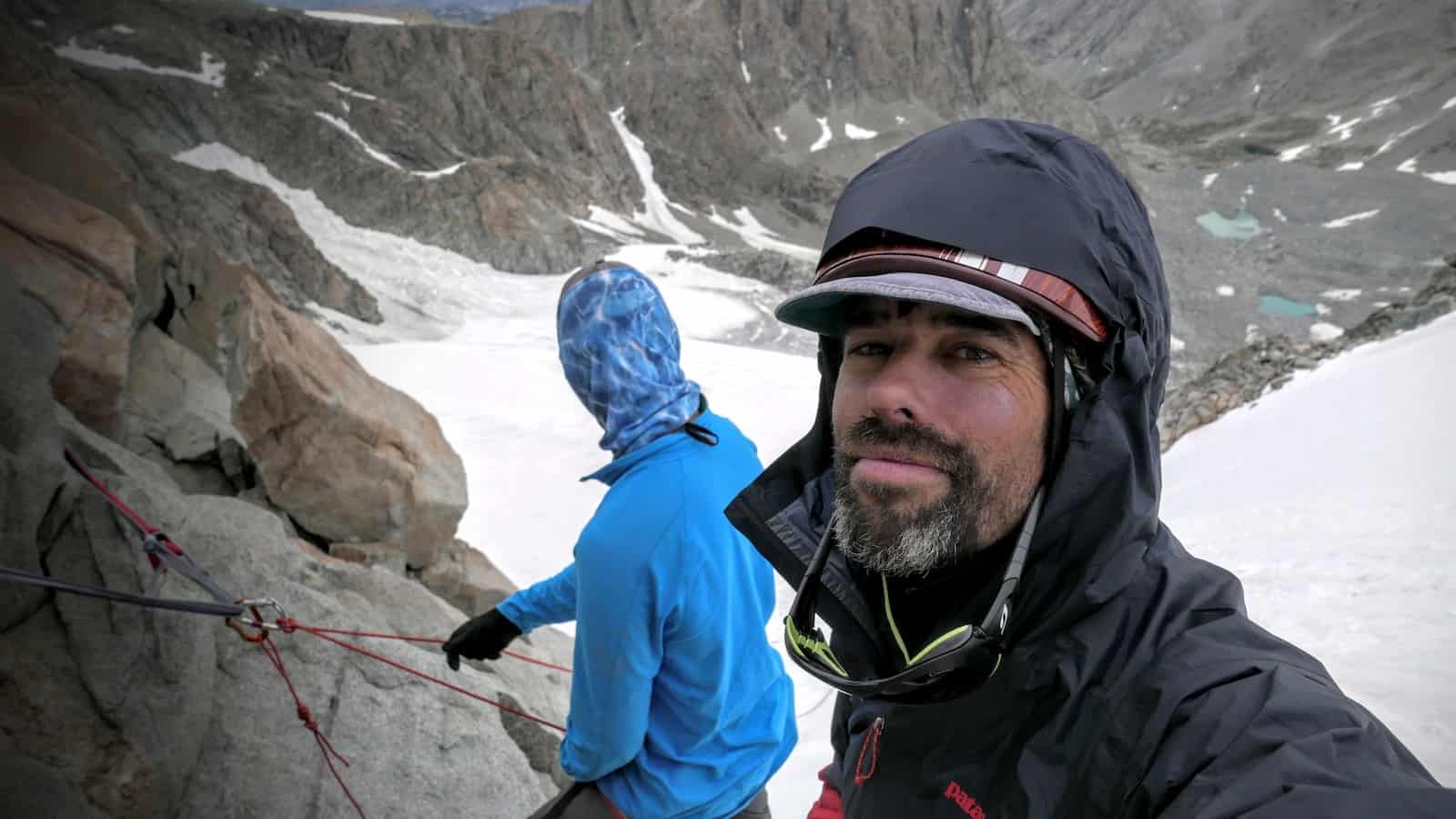This post is part of a new blog-style series that summarizes key concepts about backpacking skills, gear, and philosophy in a shorter format than our standard articles. It’s filed under the category blog.
![]()
In an earlier blog post about what footwear to consider for backpacking, I concluded with this answer to the question, “What shoes should I buy for backpacking?”:
A lot less attention could be paid to that question if we maintained healthier, leaner body weights, and spent more time on fitness development. Over the past 3+ decades of backpacking, I’ve learned something that has almost entered into my own personal gospel: the leaner I am, and the more attention I give to physical training, the less my shoes matter.

That spurred a few folks to send me an email requesting that I share what I do to maintain fitness for backpacking.
I believe fitness should be looked at holistically. In addition to physical fitness, you also have to consider your mental, emotional, and spiritual fitness when it comes to living a healthy lifestyle.
When it comes to physical fitness, there’s a lot to consider as well: sleep habits, training, nutrition, rest, etc. All four of these have an impact on maintaining lean body weight. I’d like to address what I do in each of these areas at some point in the future, but for now, I want to expand on why I believe a lean body weight – in addition to carrying less weight in your pack – is really important for a backpacking lifestyle.
Why a lean body weight is important for backpacking.
The “why” behind this objective is simple when it comes to backpacking: less bodyweight (and even more specifically, less body fat) with respect to backpacking means that:
- The muscles that you do have can be used more efficiently. If your body has 50 pounds of muscle at your disposal, would you rather use that muscle for moving 140 pounds of body weight or 180 pounds of body weight?
- Lower weight = lower stress on joints (especially in the foot) which helps hedge against cartilage damage and decay. This stuff’s been studied so much it should now be pretty common knowledge, and part of our basic education when it comes to long term life planning.
Choose your foods carefully.
Indiscriminate consumption of food has been the most significant impediment to maintaining lean body weight for me.
Maintaining lean body weight depends on managing insulin levels. A high level of insulin does two things:
- It triggers metabolic processes that convert calories to body fat. When your insulin levels are high, blood glucose levels drop and glucose enters your cells. Combine this with calorie excess, and the surplus glucose in your cells doesn’t metabolize fully and instead, glucose gets metabolized into fat – body fat.
- It halts some of the metabolic processes that burn body fat reserves. Your body’s metabolic pathways for burning fat are optimized when insulin levels are low.
Foods that screw up a healthy insulin balance include sugars (especially when combined with fats in a single meal) and other simple carbohydrates. Of course, copious amounts of those same foods also contribute rapidly to a calorie excess.
Be intentional about every calorie you put in your body, and focus on quality over quantity.
Through the years, I’ve experimented with a variety of keto-style diets but I prefer a few more carbs above the keto baseline, to keep energy reserves high during hard, sustained aerobic training. Keto does help you lose weight, but it’s not a great fit for my lifestyle, and I have some personal reasons for minimizing my meat intake.
Right now, my own diet is mostly plant-based (especially veggies with lots of leafy greens and cruciferous), some fish, mostly whole foods (not processed), nuts, lots of slow carbs like legumes, less than trace amounts of dairy, a minimal amount of refined grains and oils, realistic (not American) portions, and a minimal amount of simple carbohydrates. I also severely restrict those combinations that inhibit fat metabolism – sugars, alcohol, and fast carbs + high fat foods eaten in the same meal. In terms of processed supplements that actually provide some calories, I use a pea protein isolate as a protein supplement and occasional doses of MCT oil.
If I’m backpacking on a longer trip, I break some of these rules (more fat/carb combinations like potato chips and fettucini alfredo) and will increase my salt, carb, and calorie intake.
Schedule, and limit your eating periods.
The first world is used to breakfast, lunch, dinner, desserts, snacks, crumpets, donuts, etc. eaten throughout the day.
If this is you, your insulin is going to think you’re really cool.
And maintaining lean body weight is going to be hard, especially once you exit adolescence-young adulthood.
Once you sort out the details of a quality menu, consider limiting your eating periods during the day a few times a week. Spending 16 to 20 hours in a fasted state, and 4 to 8 hours in a feeding period, helps you maintain low insulin, allows your insulin spikes to come down more quickly when they do happen, and simplifies your life because you’re no longer chained to the three-meal-a-day social structure.
The result? Vastly improved usage of body fat as fuel.
Learn more by researching intermittent fasting.
Summary
- What: Lower your body weight.
- Why: Less stress on your joints and connective tissues = fewer injuries, more years of backpacking without cartilage damage.
- How: Eat to manage insulin levels.
- Tools: High-quality foods, intermittent fasting.




Home › Forums › Lighten your pack, and your body